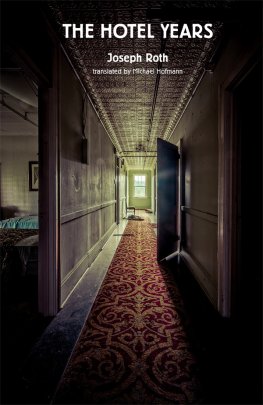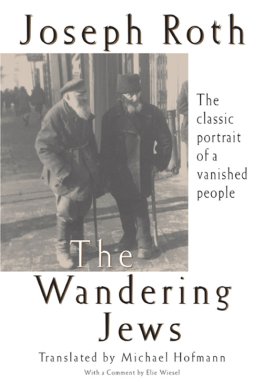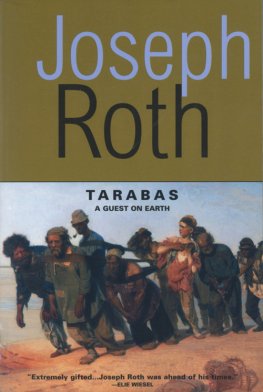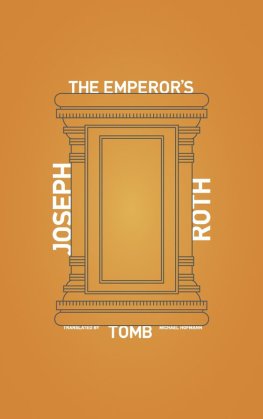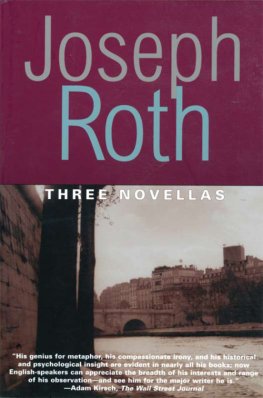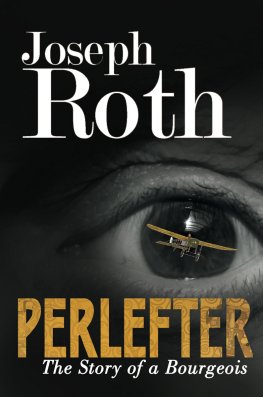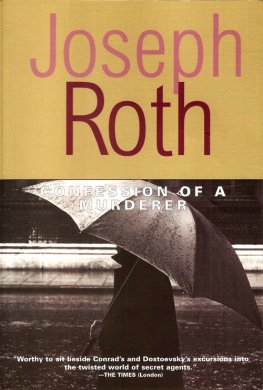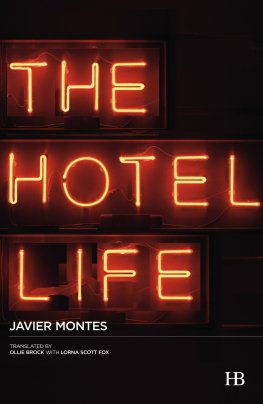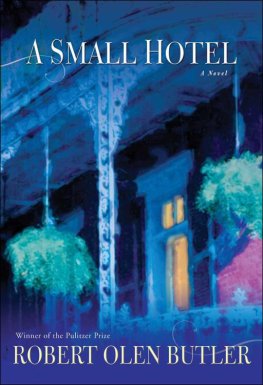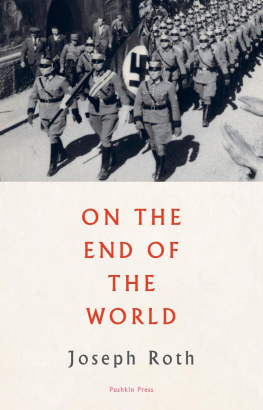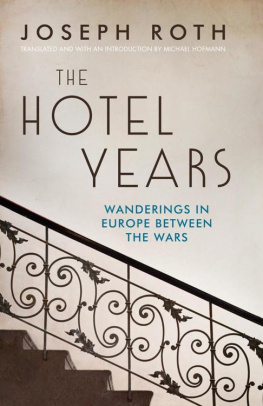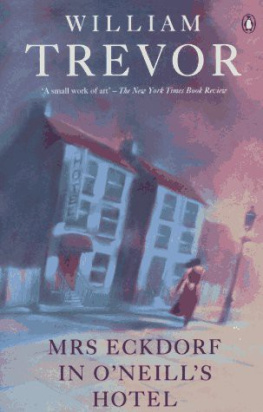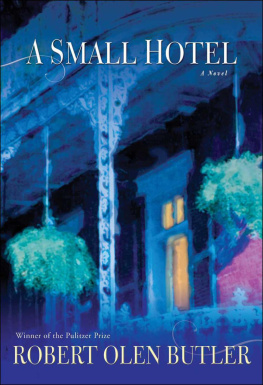Joseph Roth - The Hotel Years
Here you can read online Joseph Roth - The Hotel Years full text of the book (entire story) in english for free. Download pdf and epub, get meaning, cover and reviews about this ebook. year: 2015, publisher: New Directions, genre: Non-fiction / Science / Prose. Description of the work, (preface) as well as reviews are available. Best literature library LitArk.com created for fans of good reading and offers a wide selection of genres:
Romance novel
Science fiction
Adventure
Detective
Science
History
Home and family
Prose
Art
Politics
Computer
Non-fiction
Religion
Business
Children
Humor
Choose a favorite category and find really read worthwhile books. Enjoy immersion in the world of imagination, feel the emotions of the characters or learn something new for yourself, make an fascinating discovery.
- Book:The Hotel Years
- Author:
- Publisher:New Directions
- Genre:
- Year:2015
- Rating:3 / 5
- Favourites:Add to favourites
- Your mark:
- 60
- 1
- 2
- 3
- 4
- 5
The Hotel Years: summary, description and annotation
We offer to read an annotation, description, summary or preface (depends on what the author of the book "The Hotel Years" wrote himself). If you haven't found the necessary information about the book — write in the comments, we will try to find it.
The Hotel Years — read online for free the complete book (whole text) full work
Below is the text of the book, divided by pages. System saving the place of the last page read, allows you to conveniently read the book "The Hotel Years" online for free, without having to search again every time where you left off. Put a bookmark, and you can go to the page where you finished reading at any time.
Font size:
Interval:
Bookmark:
Joseph Roth
The Hotel Years
Introduction
Klaus Westermanns 1990 Kiepenheuer & Witsch edition of the complete works of Joseph Roth fills six blue-linen thin-paper volumes, each upward of a thousand pages. Three of these volumes are of fiction from Barbara, The Spiders Web, Hotel Savoy, and so on, to Job and The Radetzky March, through to the posthumously published Legend of the Holy Drinker and The Leviathan: just over a dozen novels and fragments, slightly more stories and novellas and three are of non-fiction. In the course of his short life, Roth wrote many hundreds of newspaper articles. If Chekhovs wife was medicine, his was journalism journalism in an unusually sweet and liberated and luxurious sense of the word, the wife in a hammock, with an umbrella drink, painting her toenails. Rainbow-coloured soap bubbles he called his pieces when he wasnt getting on his high horse to his bosses, and telling them he was sketching the portrait of an age. Over long periods, there are three, or four, or five articles a week, for the Frankfurter Zeitung and others. Roth was equal parts novelist and journalist. He wrote himself a perfect dumbbell. He cant have intended it, wouldnt even have known it (readers of his letters will recall that he lived out of two or three suitcases, and had no books, least of all his own), but the balance and parity in his work are exquisite and speaking. In a career spanning technically twenty-four, more realistically twenty years (from his return from the War in 1919 to his early death from alcoholism on 27 May 1939 at the age of forty-four) he therefore wrote between 250 and 300 published pages a year, not far short of one a day. Which in turn reminds me of something Joseph Brodsky used to say to me, long before I had begun to translate Roth at all (which happened in that same 1990): that there is a poem on every page of Roths. Brodsky further liked the connection if it is one; I think it is between his surname and Roths birthplace, Brody.
I have translated three books of Roths non-fiction: What I Saw (which first introduced English readers to the word feuilletonthe little leaf or sheet, that practice of saying true things on half a page that was Roths own definition of what he did) about Berlin; The White Cities (in the USA Report from a Parisian Paradise) about the South of France; and The Wandering Jews about the condition and perspectives of the various communities of Jews across Europe from East to West in the 1920s and 30s. The Hotel Years is the fourth, and my fourteenth of Roth altogether, and perhaps my last (though there always seems to be something else to do, or re-do, and Im not at all sure I can contemplate life without him). As the title is supposed to intimate because in fact all the years of Roths maturity, after 1919, after university and army, were hotel yearsit is nothing less than a new selection from everything and first principles (and no item here has been published in any of the other three books). It involved repeatedly going through the three blue non-fiction volumes and seeing what stuck, what went with what, what lived, what moved. There is no duty, no mission, no set subject, no period, no place; I could please myself. Just as Roth went from hotel to hotel, and just as his pieces seem always to fly under his own flag and no other one imagines, and he encourages one to imagine, in A Man Reads the Paper, those pieces flanking his being written, so to speak, in newspaper, while his are always written in Rothso I went from article to article, choosing by turns something topical, something lasting, something burning, something whimsical. In 1930, Roth put out his own collection of recent feuilletons called Panoptikum; coming across a list of its contents, I am pleased to relate that fourteen of its twenty-eight pieces are here (while another two have already appeared in What I Saw and The White Cities). I am happy to say I dont think I strayed too far from his sense of himself.
Quite early on, I decided to top and tail the selection: give it an envoi, and some lingering, echoic conclusion. The last thing is in a way the first: Roths earliest memory so he claimed the loss of his cradle. (Surely he began as he meant to go on: in a letter of October 1932 he wrote, The most powerful experience of my life was the war and the end of my fatherland, the only one I have ever had: the Dual Monarchy of Austria-Hungary. The cradle surely is a proleptic, poetic and darkly funny version of that later loss: one can imagine other auto-mythologists like Dylan Thomas coming up with something similar.) For a time I had three sections Home, Away, and Hotels which became five, and then eight. Fibonacci. Sixty-four pieces eight squared. I ordered them as I might a book of poems. The order was to be basically chronological, but not rigidly so. I found sequences that I wanted the celebrated hotel series, from 1929, evidently, but also the tours of Russia and Albania, and some of the domestic pieces from the Ruhrgebiet and elsewhere. I liked the idea of little out-of-place hostages (the bubble of Yin in the Yang) in some of the sections: a hotel piece, the Hotel Kopriva, not in the hotel section; beginning the German section with something seen in Vienna; keeping a musical memory of the Volksgarten outside the Austria section, and a Russian piece (The Opened Tomb) outside that devoted to the USSR. To name just a few. Any order so long as its not too rigid. Half a dozen translations I ended up leaving out the pieces werent bad, the translations were OK, there was just no good place for them. They would have weakened the whole. Coverage was an aim; geography, evidently, but also history: the Great War and its aftermath; the Inflation, reparations and partial French occupation; the constant unrest and instability in Weimar Germany; politics, crime, style; emigration and exile; Communism, Fascism and Hitlerism. I collected a plurality of pieces on such archetypally Rothian themes as train travel, spring (which surely is his season, nor has anyone written better about it), oil-wells, interior design and balconies. And there are singular pieces on two gypsy girls met on the street, on a German-speaking blond Negro Frenchman, on a musical clown, a near-matricide, a morphine murderess. A trio of pieces on Roths avatar and idol Heinrich Heine (another divided nature: German and Jew, poet and journalist, wit and agonist), the Austrian playwright Grillparzer, and a little known poet Eduard Samhaber represent Roths taste and interest in literature. Furlough in Jablonovka (published posthumously in September 1939, with the Second World War under way) takes one back to before the first piece about men and dogs: to 1914 and World War One. In other words, the form is an unending spiral.
It is my hope that these pieces will take the English reader closer to Roth than anything else he wrote. For once, there is no story, no dependable subject, no histrionics (as often in the letters, in an inextricable and worsening situation). He comes into these pieces as nowhere else: it is him walking the gypsy girls over the road; loosely impersonating a millionaire; making landfall in Albania (in that exquisite piece); checking in and out of his hotel fatherland; taking the tram ride from nowhere to nowhere, but getting a little closer all the time to the end of the world, in the Ruhr. It is his mind, his graceful spirit, his leaps and flights, his noticings that he parlays into pieces here. His supplying and withholding of contexts; his exaggerations and his subtlety; his irony, his humanity and his blank hatreds (say, of the nationalist duelling fraternity students). His modesty and his nettled arrogance (Interviews are an alibi for a journalists lack of ideas). His sublime gift for phrases (Saint Petroleum); the asperity and reasonableness of his conclusions (Thats what is missing in Germany: the regulating consciousness); his gorgeous tirades
Font size:
Interval:
Bookmark:
Similar books «The Hotel Years»
Look at similar books to The Hotel Years. We have selected literature similar in name and meaning in the hope of providing readers with more options to find new, interesting, not yet read works.
Discussion, reviews of the book The Hotel Years and just readers' own opinions. Leave your comments, write what you think about the work, its meaning or the main characters. Specify what exactly you liked and what you didn't like, and why you think so.

